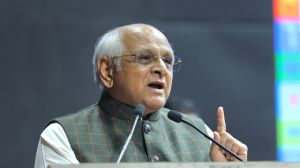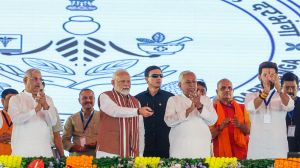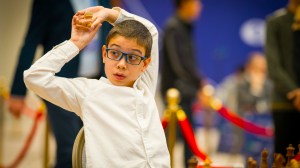All eyes on Hizbul’s Pak-based boss
SRINAGAR, AUGUST 5: While the Government's representatives and Hizbul commanders met again today to begin working out the ``ceasefire moda...

SRINAGAR, AUGUST 5: While the Government’s representatives and Hizbul commanders met again today to begin working out the “ceasefire modalities,” everything is virtually on hold. All eyes are across the border on Hizbul’s Supreme Commander Syed Salahudin and his August 8 deadline that India involve Pakistan in the talks otherwise the ceasefire is off.
Involving Pakistan now seems to be an impossibility, especially in wake of Prime Minister Atal Behari Vajpayee’s harsh indictment today, and so the future of the current dialogue hinges on a possible extension of the deadline.
There were some indications to this effect given that Salahuddin was quoted by a news agency as having said that the Hizbul wanted to give peace a chance in the Valley.
Still, tension is palpable. Even reaching a concensus on theground rules of the ceasefire seems extremely difficult. Sources say therewas no headway in the discussions because of a sharp divergence in theviews and approach of the two parties. Today’s meeting, however, is notbeing given much importance as the Government side was represented by afew middle-rung officials. Officially, as well, today’s parleys are not beingconstrued as Round Two of the talks because the designated members of theofficial team were not present. In fact, there was no confirmation fromGovernment circles that there was any meeting.
It is learnt that Special Secretary in Union Home Ministry M B Kaushal, who is also chief of the official committee to work out the ceasefire, is expected here tomorrow. He couldn’t make it to Srinagar today because of his “pre-occupation” in the Chief Ministers’ conference at Delhi. So Hizbul commanders met a group of middle-rung officers.
Confirming this, Hizbul’s point man Fazal Haq Qureshi said that although talks were held today, he did not participate in today’s parleys. “Forall practical purposes, my role was over after the first meeting. I haveno jurisdiction to mediate on the dialogue focussing the core issue ofresolution of the main problem (of Kashmir),” Qureshi said. “Today’smeeting was to resolve the technicalities for a complete implimentation ofthe ceasefire. And there was absolutely no need for my facilitation.”
The D-day for everybody, however, remains August 8 since that’s the deadline of the Pakistan-based Hizbul top brass. “Whether the process survives or notdepends on Syed Salahudin’s decision regarding the deadline. If he extendsit, the process will go ahead and if not, we should close the chapter hereitself,” a released militant commander and a second rung Hurriyatconference leader said.
Sources in Hizbul, however, believe that Salahudin’s demand for Pakistani involvement in talks at this stage has its roots in the pressure exerted by various separatist circles and even the Pak military establishment.
Earlier, the Hizbul’s stand on this issue was that the Pakistan’s involvement is inevitable but it could join the dialogue at a “later” stage, a view also stated by Qureshi.
He, too, believes that the extension of the Hizbul deadline isessential for the continuation of the peace process. “I have appealed toSyed Salahudin to extend his deadline in the larger interest of the processand I hope it will be extended,” he said. “The deadline was set beforethe first round of meeting. Now that the outcome of the first meeting hasbeen sent to Syed Salahudin, I expect that there will be a change,” hesaid.
He attributes the current confusion to the “communication gap” between the Hizb top brass and the commanders who took part in the negotiations.
It is learnt the Hizb commanders here too are in a fix. Sources said they don’t want to be seen as backtracking from the process at this stage and want to give the three-month ceasefire a try. Some also don’t rule out the likelihood of a split in the Hizbul. If that happens, however, the consensus is that the peace process will receive a severe setback.





- 01
- 02
- 03
- 04
- 05


























